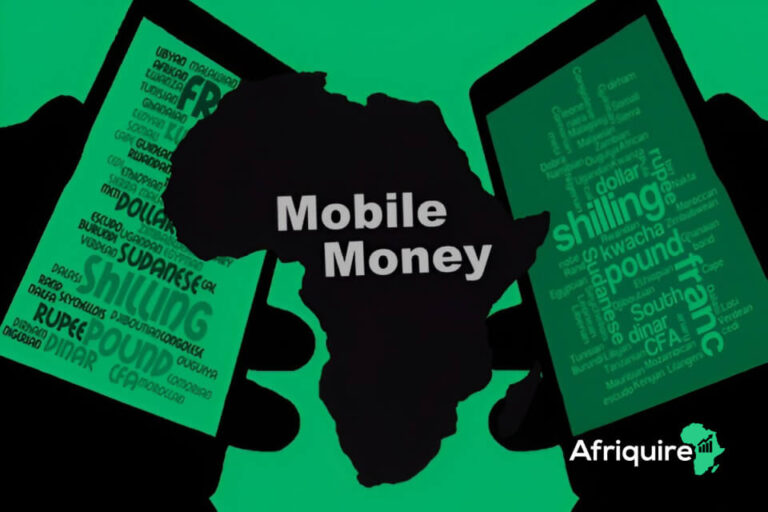Introduction
Everyone would agree that the first goal of a business is profit-making. However, companies should go beyond that. African startups are showing that other than tangible they are also interested in addressing some of the most urgent social challenges our world faces, such as access to healthcare, education, clean energy resources, and financial inclusion. Working where traditional institutions found it challenging, they are making significant changes and real improvements in lives on the continent.
In major African cities like Nairobi and Lagos, startups driving social impact are revolutionizing communities through innovative solutions to everyday challenges. These startups have crafted unique strategies that blend profit with purpose, proving that businesses can thrive while making a meaningful difference. Their stories of inspiration, the obstacles they face, and the transformative changes they create highlight innovation’s power in improving lives. Let’s explore how these startups driving social impact are shaping a better future.
Introduction: Importance of Social Entrepreneurship in Africa
Entrepreneurship in Africa is important because it addresses social problems even as it generates income. Social impact ventures tend to address poverty, education, and health issues by combining profit-making with community impact to create sustainable development.
Overview of the African Startup Ecosystem
As more investors and funds flow into Africa’s budding startup ecosystem, the focus is not just on creating apps to develop and products to sell but a sense that there could be something more fulfilling. African entrepreneurs are breaking new ground, determined to use technology and innovation to find solutions to real problems. These startups have touched lives in one way or another, from basic access to healthcare and education down the line to financial services for those who have never stepped foot in a bank.
Countries like Nigeria, Kenya, South Africa, and Egypt are fast becoming hubs for innovators, showcasing the significant role of technology in economic development. These nations are now destinations of choice for global investment and talent, driven by the transformative potential of technology. Despite funding gaps, infrastructure limitations, and policy barriers, startups in these regions remain resilient. By leveraging technology to overcome these obstacles, they create lasting organizations that drive economic growth and substantially pay society back.
Another thing that makes the African startup ecosystem peculiar is its impact. This is not only for-profit ventures but also African startups with a social mission in communities that need them most. Read on to understand how startups Impact, one at a time per solution. impact their society’s issues impact their society’s issues

The Role of African Startups in Addressing Social Issues in Africa
Startups have become the driving force in meeting Africans’ social needs through innovation and technology in solving many problems that face most African regions. Here, we will look at the role of African startups in addressing social issues in these sectors – education, healthcare, financial inclusion, environmental sustainability, and food security.
Education
Startups are innovating access to better learning materials, teacher training, and student engagement across the continent. For instance, Mwabu, an edtech firm based in Zambia, in collaboration with UNICEF and the Zambian Ministry of Education, is rolling out a digitized learning platform aimed at students in underserved communities through access to interactive educational content. In the ed-tech space, Nigerian startup TeachMe offers a platform that connects students with quality teachers on an online learning platform.
Healthcare
Investing in health startups allows for better access to medical services, enhanced diagnosis of diseases, and health education-all augmented by technology. For example, Ugandan healthcare tech startup M-Scan is trying to reduce maternal mortality rates by making mobile ultrasound services available to expectant mothers in rural areas. Also, Nigerian health tech startup Helium Health offers electronic medical records systems that will enhance healthcare data management for better patient care.
Financial Inclusion
More and more startups are developing financial inclusions in Africa to provide better access to financial services and payment solutions, and they can send and receive financial literacy. Kenyan fintech firm M-Pesa provides mobile money transfers through which one can send and receive money using their cell phone. Nigerian fintech startup PiggyVest developed a digital savings platform to help save money, after which it was possible to invest it.
Environmental Sustainability
Startups make the African continent greener by increasing energy efficiency, diverting waste from landfill sites, and encouraging sustainable agricultural practices. For instance, Ghanaian cleantech startup EcoCycl offers waste management services that turn waste into energy and organic fertilizers. They help resolve the issue of water supply. Kenyan clean-tech firm SunCulture supplies solar-powered irrigation systems that increase agricultural yield while reducing energy costs.
Food Security
Productivity improvement, reduction of post-harvest loss, and the practice of sustainable agriculture are ways in which startups enhance food security. FarmDrive is an agritech startup founded in Kenya that designs digital platforms for farmers to access markets and financial institutions by networking them with suppliers and buyers. Another example is Releaf, an agritech startup based in Nigeria that is developing a digital platform with insights and data to connect. It gives farmers the information they need to improve productivity and reduce post-harvest losses.
Startups are addressing the social ills of the continent with diffused solutions. They are transforming communities gradually and setting up to address various issues, including education, health, financial inclusion, environmental sustainability, and food security.

Case Studies: Startups Creating Social Impact in Africa
Despite its diverse populations and growing potential, Africa faces several social and economic issues. Over time, start-ups have been a beam of light in the darkness, creating value and improving lives. We will be discussing five impactful startups based in Nigeria, Kenya, and South Africa, each contributing to improved health care, education, financial inclusion, environmental sustainability, and food security.
Healthcare: Mobihealth (Nigeria)
Mobihealth is a Nigerian telehealth startup revolutionizing health care with access to quality medical services through mobile technology. It has been working to bridge the gap in the number of patients and healthcare providers, especially in rural areas where a limited number of medical facilities can be found, since its inception in 2017. Its mobile platform supports virtual doctor consults (even outside of Africa), medical advice dispersed through text messages, or even scheduling an at-home appointment with a physician. This has increased healthcare access to millions of Nigerians at a lesser cost with better outcomes.
Education: Eneza Education (Kenya)
Kenyan startup Eneza Education uses mobile technology to facilitate educational content for people who otherwise would not have easy access to these facilities. Founded in 2011, Eneza Education is an education technology company seeking to improve learning outcomes among African students. They are currently active in Kenya and Côte d’Ivoire. Other resources on the startup’s mobile platform include video lessons, quizzes, and assessments. Their resources are available even in areas with low connectivity. To date, Eneza Education has reached more than 1 million students and has improved their educational performance.
Financial Inclusion: M-Pesa (Kenya)
M-Pesa is a Kenyan startup that opened mobile payments to millions of Africans, catalyzing financial inclusion. M-Pesa launched a cell phone-based money management service in 2007, enabling users to store, send, and receive money via their cell phones. That new approach has led to deeper financial inclusion, poverty reduction, and better economic outcomes for tens of millions of Africans.
Environmental Sustainability: GreenTec (South Africa)
GreenTec is a South African company inspired in 2015 by the vision of accomplishing revolutionary ideas in handling waste management to realize an eco-friendly continent. The company GreenTec collects and processes waste, reduces environmental issues through mobile technologies, and reduces ecological waste degradation caused by waste disposal. GreenTec has sought to apply proper disposal and sustainability of wastes emanating from the environment in collaboration with local governments and businesses.
Food Security: FarmDrive (Kenya)
FarmDrive is a Kenyan startup that empowers farmers through access to credit and market information to better food security. Incorporated in 2014, FarmDrive embarks on a vision of more productivity and better food security across Africa. The startup’s mobile platform addresses the critical access gap in credit, market information, and agricultural advice that farmers need to boost yields and livelihoods. To date, FarmDrive can reach more than 10,000 farmers and enhance their productivity to ensure better food security in Kenya.
These five startups, among many, go a long way in creating social impact across the continent by improving livelihoods for better health, education, financial inclusion, environmental sustainability, and food security. Using innovative approaches to social impact, they create a model for entrepreneurs and policymakers across the continent.
Measuring the Social Impact of African Startups
The ability to gauge the social impact of African startups empowers us to determine how successful they are at transforming the communities they are created to serve. Driven by the need for a strong model providing structure and guiding an organization on how they are performing or whether they will fail, there will be a look at KPIs, SROI, impact evaluation frameworks, data collection, analysis, reporting, and transparency.
Key Performance Indicators (KPIs)
KPIs are quantifiable metrics that allow tracking the progress a startup is making towards achieving its social impact. They can be thought of as report cards.
Using healthcare as an example, a startup could be helping people access healthcare in rural areas. Measures for how many patients they are treating, whether people are satisfied with care, and what the treatment costs may form possible KPIs for such a venture. They help these African startups see whether they have reached their aims of improving lives.
Social Return on Investment (SROI)
The Social Return on Investment is one way to show how much “good” a startup will create for every invested naira or dollar. The other way to look at that would be to say that an investor who invests money in some project to help people will be interested in knowing about the returns they will realize on their investments based on the impact that occurs in the social economy.
For example, if a company invests $100,000 in a startup project, it yields community benefits amounting to $150,000. The SROI would, therefore, become 50%, showing that the money is not only taken but also improves lives in some way.
Impact Evaluation Frameworks
Impact evaluation frameworks gauge the social impact of a startup. How do we know if a startup is helping? Impact evaluation frameworks help to evaluate if the business is making life better. It asks questions like, “How much more comfortable have they made life?” or “How many new jobs were created?” etc. The answers to key questions will determine if the startups are making a difference. These frameworks often involve—bear involved—bear involved goal-setting, indicator identification, data collection, analysis —bear involved, and evidence of what is working and what is not to maximize the social impact.
Data Collection and Analysis
For African startups to know whether they are making a difference, they must collect and research data about their work. They gather data on what the tools do, the outcomes produced, and the eventual summary impact. African startups may use tools such as surveys, interviews, or group chats to hold conversations with people. They take that information and, using tools- such as charts or graphs, or even computers that can find patterns – understand them better. This would enable the startup to realize what is working and what is not to know how to reach their goal that better help people and communities. Better reach their goal
Reporting and Transparency
It is through corporate reporting and transparency that credibility can be established. The social impact statement should have clear, transparent language that is also evidence-based. Transparency involves success and even failures and experiences, struggles learned from them, and strengthening accountability. Failures and struggles African startups that are very thorough with this will be able to prove that they actually create an impact and not just say it. They write reports, make videos, or put up pictures explaining what they have achieved and their struggles. This openness builds trust for investors and partners alike who equally want to help to know they support something tangible and of worth.
Measuring the social impact of African startups is checking if your business suits people and the environment. The startups, too, need some form of monitoring of their performance regarding creating impact. This involves setting clear goals and KPIs, measuring the SROI, and gathering data on what is working and needs goal-fixing goals. It helps the startups see what’s going great, fix what isn’t, and keep growing in the right direction to help more people.
Frequently Asked Questions
1. What are social impact startups?
Social impact startups refer to businesses that not only concern themselves with profit-making products but also deal with solving specific social, environmental, or economic issues. In contrast, profit-making products are products and services on offer. They devise ways in which the community can be helped, like bettering access to education or health.
2. How can social impact startups affect communities where they come up?
These startups often create jobs, supply essential services, and empower people. They solve local problems, enhance the quality of life, and boost the economy of their communities.
3. In what sectors do these impactful startups function?
They exist in many sectors that include but are not limited to health, education, agriculture, and fintech. Each sector locates problems in specific locations and provides solutions that later lead to all-round development.
4. How do investors value social impact startups?
They track factors like job creation, involvement in the community, and environmental stability. They concern themselves with how much the startup is contributing to society apart from the financial returns.
5. What does the future hold for social impact startups in Africa?
With increased investment and heightened interest in sustainability, more entrepreneurs will rise to solve some key problems. This growth will keep transforming communities across Africa.
Conclusion
African startups are driving social impact by helping to solve various problems in Africa, such as improving healthcare, preserving the environment, and creating jobs. These enterprises do not regard money as the end but rather as a means to an end to making life easier and more pleasant for people.
Imagine an Africa where new businesses could focus on socio-economic development – the impact would be huge. The potential is enormous, with virtually unlimited applications. For this to happen, startups need access to the right resources, so as to facilitate growth. They would require government support, investor resources, and information from NGOs, amongst others. That way, they will be able to change more lives and, at the same time, make Africa a better place for all.



